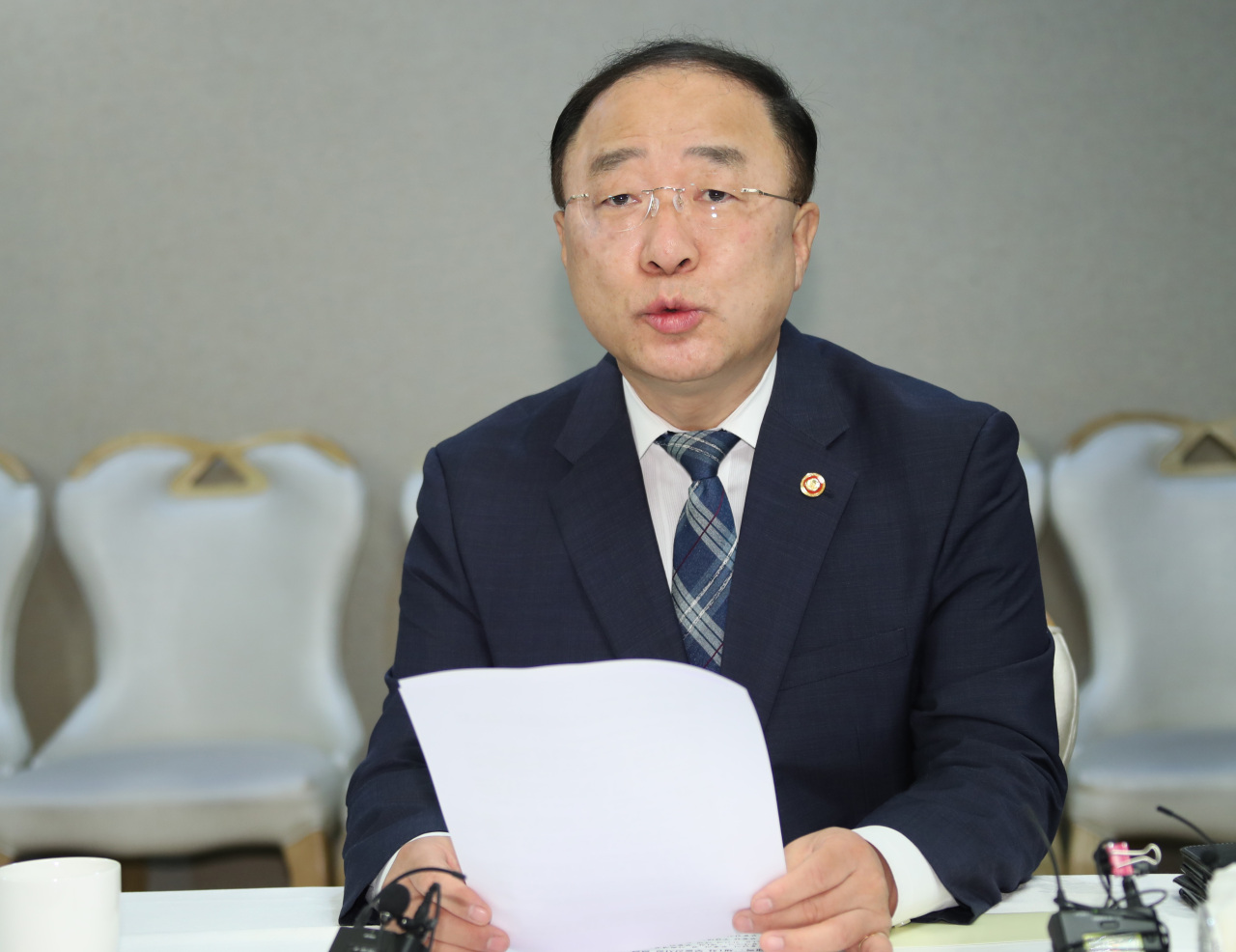S. Korea to push ahead with housing deregulations, despite Seoul’s disapproval
Fiscal chief vows stern watch on expediencies, dismisses discord with Seoul City over redevelopment
By Bae HyunjungPublished : Aug. 5, 2020 - 16:58

South Korea vowed Wednesday to strengthen surveillance over the transactions of expensive apartments, in a move to curb rampant speculative buying practices and to steady snowballing housing prices here.
It also said that it will push ahead with its latest housing supply plan in Seoul and Gyeonggi Province, regardless of the apparent discord with the municipal government over eased redevelopment rules.
“(The government) will tighten control on (irregular practices in the housing market such as) price-rigging and tax evasion,” said Deputy Prime Minister and Finance Minister Hong Nam-ki in a meeting of economy-related ministers held at Seoul Government Complex.
“Regardless of the housing supply volume, we may never stabilize the real estate market unless illicit transactions and speculative buying practices are eradicated.”
The fiscal chief was referring to the government’s plan announced a day earlier to add 132,000 residential units in Seoul and its surrounding metropolitan area to narrow the demand-supply gap and curb housing prices.
The blueprint also included landmark deregulations, such as allowing timeworn apartments to be redeveloped into skyscrapers under certain conditions.
“The pangovernment task force has detected expediencies such as rigging the contract price (for tax evasion) and illegally using other people’s names in housing subscriptions,” Hong said.
“Such market practices trigger the anxiety of end users and consequently lead to excessive chase buying.”
As a key action plan, the government will keep a regular monitor on transactions of apartments that are priced over 900 million won ($757,000), according to the finance chief.
The 900 million won currently serves as a key indicator in housing regulations. Under the “Dec. 16 measures” introduced last year, houses in overheated zones that are priced over 900 million won face a tightened lending rule -- a loan-to-value ratio of 20 percent, instead of the 40 percent applied to lower-tier houses.
The fiscal chief also underlined that the central government and Seoul Metropolitan Government are not in discord over the reconstruction deregulations.
On the previous day, authorities said that they will allow outdated apartments to be rebuilt to expand their floor area by up to 500 percent and the number of floors to 50. Such a measure would require the two-thirds consent of residents, as well as participation of state-run builders such as the Korea Land & Housing Corp. and Seoul Housing & Communities Corp.
The metropolitan city government, however, said in a separate briefing that it “does not really consent” to the central government’s blueprint and that the floor limit should be kept at the current 35.
“Seoul City did not oppose the plan itself but came up with the suggestion that reconstruction issues in the private sector also need some adjustments,” Hong said.
Vowing to prevent what he saw as “policy miscommunications,” the fiscal chief also urged the government task force to work closely with Seoul City and other interested parties.
By Bae Hyun-jung (tellme@heraldcorp.com)











![[Today’s K-pop] BTS pop-up event to come to Seoul](http://res.heraldm.com/phpwas/restmb_idxmake.php?idx=644&simg=/content/image/2024/04/17/20240417050734_0.jpg&u=)





![[KH Explains] Hyundai's full hybrid edge to pay off amid slow transition to pure EVs](http://res.heraldm.com/phpwas/restmb_idxmake.php?idx=652&simg=/content/image/2024/04/18/20240418050645_0.jpg&u=20240419100350)

